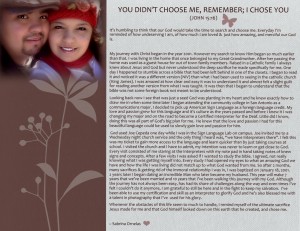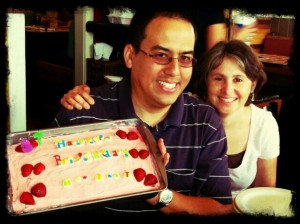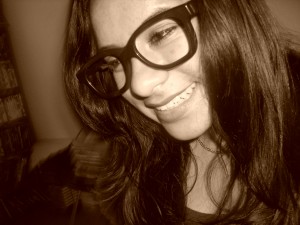To start a Deaf Ministry, God is the provider for all needs and maker of connections.
Deaf Christians, like all Christians, need and seek a close relationship with God, spiritual friendships that lead to maturity in Christ and ways to serve using their gifts given by God. These relationships and activities all require communication.
As for interpreters … with them, there can be Deaf members (who are users of American Sign Language (ASL) in the church because access to worship and knowledge of the Bible will be accessible to them. Without interpreters, there may be hard of hearing members who can use their residual hearing, talk and speechread (lipread) well enough to follow the songs and the message or be able to follow it at some level with support from someone taking notes for them. This may be minimally adequate for one individual, but not sufficient for supporting a ministry group of deaf people.
It’s important to view Deaf People as a linguistic minority group – their language is American Sign Language, which is fully fledged language with a grammar and modality different from spoken English. It is a language, as much as English, Spanish or Russian is, and has a different modality – it is visual-gestural, not spoken. With that understanding, meeting the need would be very similar to what one would do to interact with or to reach out to any other group that does not use English as their primary language. Many of our congregations serve linguistic minority groups through a specialized ministry, which is integrated into the church and also has unique cultural and language needs met through events held in that minority language.
For a ministry to grow into a healthy group and have communication work effectively, there would need to be American Sign Language interpreters to facilitate communication between deaf and hearing people in the church. Interpreters and deaf members also become advocates or educators of hearing people who do not have knowledge of Deaf culture, ASL, and visually oriented ways of living. This is not to say interpreters are the most important part of DM – but a key piece to the puzzle to get a DM started and maintained as part of a larger English-speaking (hearing) congregation.
There are many areas of interpreting that can be discussed, even other areas of Deaf Ministry – however, this article will focus on the beginning steps of developing interpreters who can serve in the Deaf Ministry.
1. Leadership support
For a church’s DM to be long lasting, not fly-by-night, the church leadership would need to be supportive of the effort by being invested in the relationships, such as in shepherding the ministry, and by being financially committed and able to pay for interpreters (community professionals) for Sunday worship or midweek if there are not members of the church who can regularly meet the need. Without this commitment, there is no guarantee of consistent access to God’s word and encouragement for a deaf disciple. A deaf person or people in this situation will be hard pressed to keep close relationships with God or members of the church. Genuine support would lead to the provision of that bridge between hearing and deaf people.
2. Interpreter development – from within the congregation and from outside
From within — A person who wants to become a skilled interpreter has two steps to take: to learn the language as you would a spoken language, then learn the skills of interpreting between ASL and English. The good news is this can be done! The most effective way is to go to a ASL program at a college or university with a good reputation in the Deaf community, then gain interpreting skills from taking specialized ASL interpreting skills classes. The church can teach ASL classes – the best purpose this can serve is to create a basic connection between the deaf and hearing people by giving basic signs for interactions, to get someone interested in learning the language more thoroughly by later taking a formal class, and to dispel some myths that many hearing people have about deaf people – such as the myths that ASL is not a language, that all deaf people can or should lipread, or that deaf people cannot drive, etc.
From outside – I’ve found this a challenging area. ASL interpreters have a pretty rare skill, so they are often asked to volunteer to interpret in various settings. If we see that an interpreter is visiting our congregation, it may be tempting to be overly friendly with the hopes that they will come back because of the DM and serve. Like any other individuals who may or may not be interested in seeking God or joining the church, if the interpreter is interested to come back because of personal spiritual interest, this, I’ve found to be the most healthy. Then the person may choose to learn about what we believe and decide to join us. If not, having the friendship long term with the person is great – friendship shouldn’t be dependent on them being willing to serve the DM.
We have been blessed with some interpreters who have decided to follow God as college students at Pierce College or at California State University, Northridge (CSUN). This has been a source of help to our ministry. When a young signer or interpreting student becomes a Christian, they may be eager to interpret right away and usually the need is evident. Speaking for myself, I was interpreting before and after I was a Christian for deaf people visiting church, then for our new DM. I didn’t realize I needed boundaries – it’s still an area of my life I’m working on! It would have been more spiritually healthy for me to wait and be grounded as a Christian in my relationship with God and friendships before doing so. It would have helped me learn to balance the two – service and the meeting of my own spiritual needs. Therefore, it would be wise to practice this with young interpreters or signers (who would be interpreters but are still learning the language) and who can serve also, in due time. These young interpreters will need training and mentoring from the more experienced DM interpreters. I’ll address this topic in the next article along with sharing some ways we have structured our interpreter service team.
Thanks for reading this first article on interpreters…. I pray it was helpful.
I hope to write more on other interpreter-related topics.
If you have any questions or would like to be in touch with me, my email is helen.hayter.quiroz@csun.edu.
Helen Hayter Quiroz, MA, CI/CT
Los Angeles Deaf Ministry Team


